Wwoofing in Hokianga Bay
I am going to tell you about my first wwoofing experience. I had registered on the Wwoofing Site a long time ago and had sent many applications. I was open to everything and I also had many references regarding work with animals and kids, so I thought it would be easy to find something. But it wasn’t. We were close on giving up, when we met two other German backpackers, who had two places, who wanted them to come. So, they decided to tell one of them, that the two of us would be coming instead of them and it worked. We got accepted! That was very nice and helpful of our German friends. As we got to know later, it is a lot easier to find something, if you already have recommendations on your profile, so this was literally our starting ticket!
Directly the next day, we headed to Hokianga Bay at the West Coast of the North Island. From the city Kohukohu it was still a half an hour drive only over gravel road into the Nowhere.
Firtsly, I will explain what wwoofing means – especially to the ones, who haven’t read my post before -, it stands for willing workers on organic farms. This means, we work there for no money, but in exchange can stay and eat there for free.
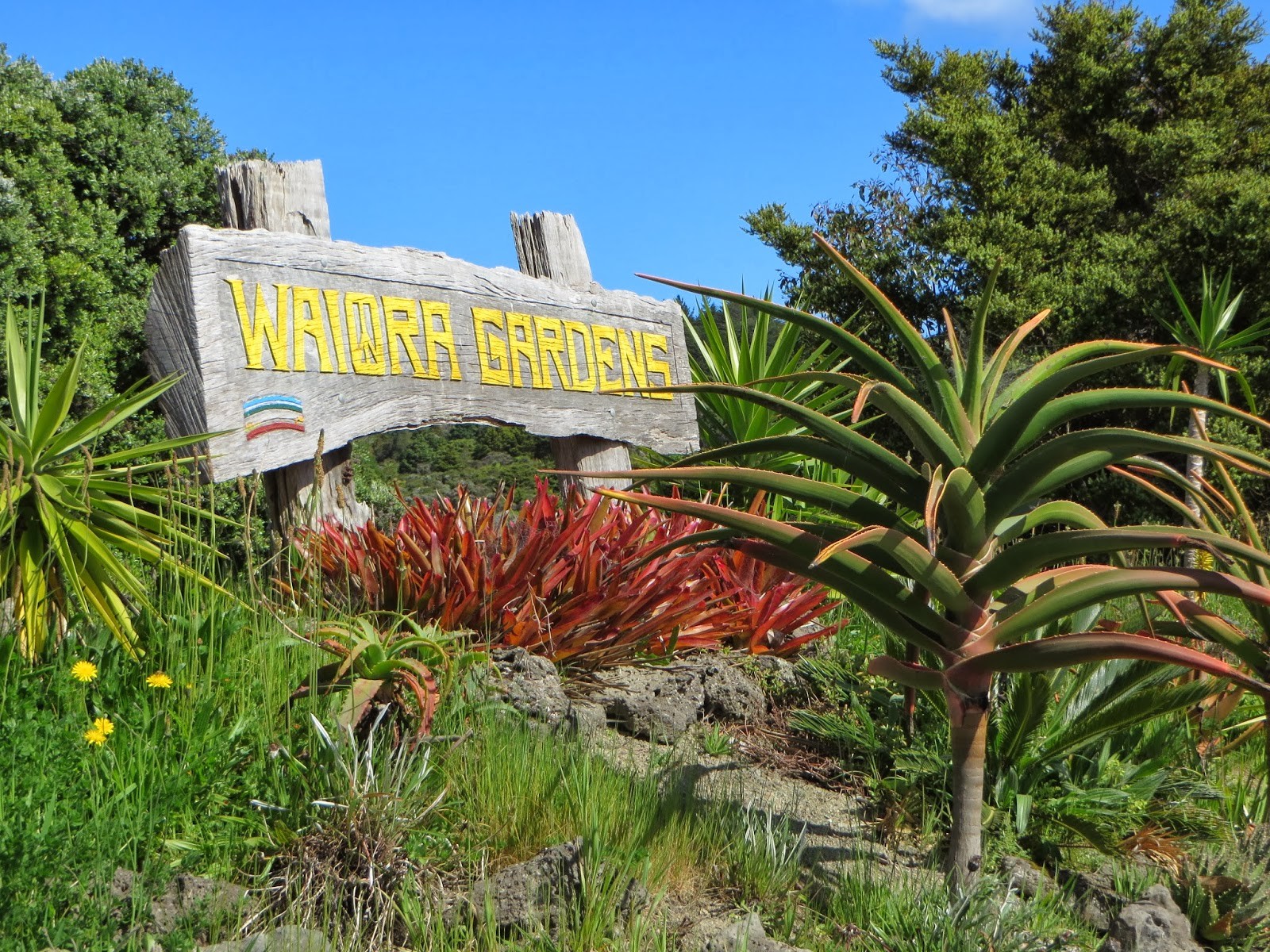
Now, back to our first Wwoofing place. We knew we had arrived, when we saw the colourful sign of Waiora Gardens. Angela welcomed us and showed us the whole place, which by the way is huge! She presented us the chickens, four big dogs, three goats with their twin babies and the other members of the community. Then, she showed us the facilities: the compost toilet – a wooden house without doors in the middle of the garden -, our small and cute caravan for sleeping, the vegetable garden, the pond with float, the common living room – with massage chair, many plays and a big kitchen for cooking and a big, amazing, natural wooden table. There, we were immediately served a delicious meal. Angela was an amazing cook, it was always very delicious and always too much. She even made bread on her own – and even very good bread. Actually, she was German and with 17 years ran away with her boyfriend, went to New Zealand and never came back. Since then, she had started to build up this community and a self-catering life. They wanted to be independent and grow everything they need in the garden. It worked actually pretty well, but not good enough as she still went grocery shopping in the village. The community was not big enough and she was the only person really working for it. Her son, who lived with her – only stayed there, because it was cheap, but never really did anything. The other, very nice guy was already very ill at that time and couldn’t work a lot. At the same time with us, there was an arborist staying at the place, who was very friendly and always joking. We got a long very well. From the very beginning, we felt welcome and comfortable – the only thing lowering this, was the toilet without doors.
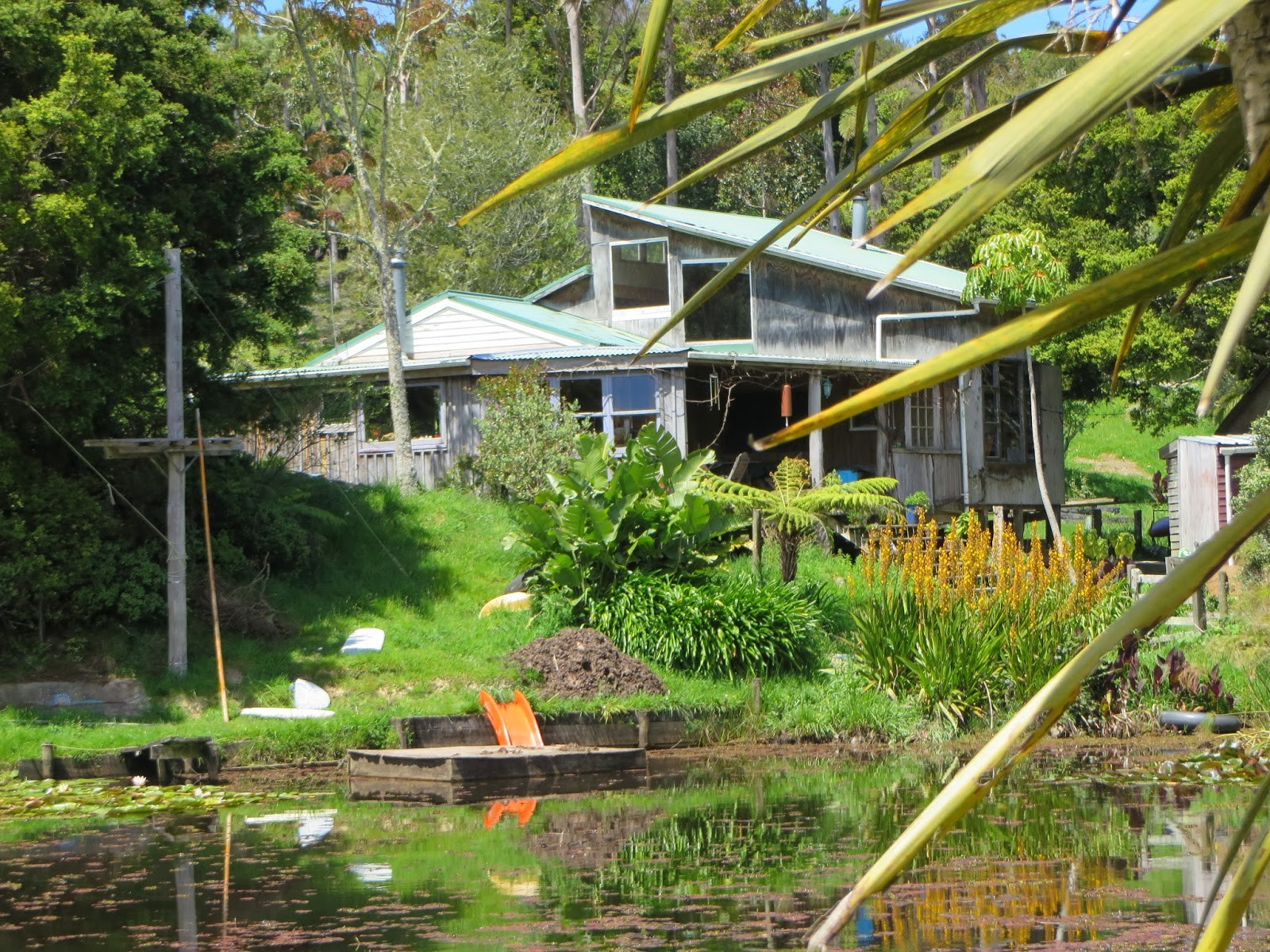
This is the view over the pond on the common rooms.
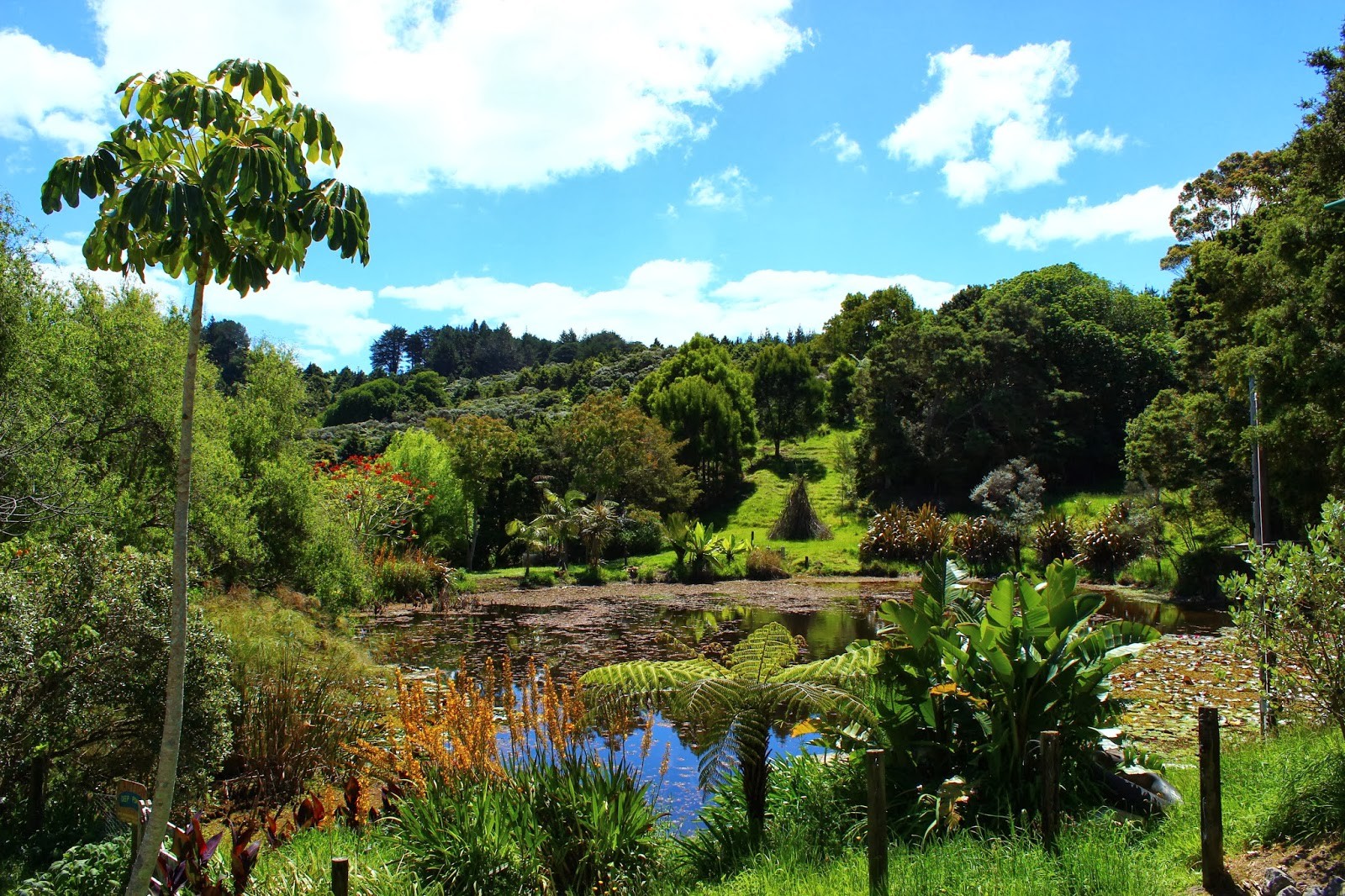
The view over the pond and parts of the property.
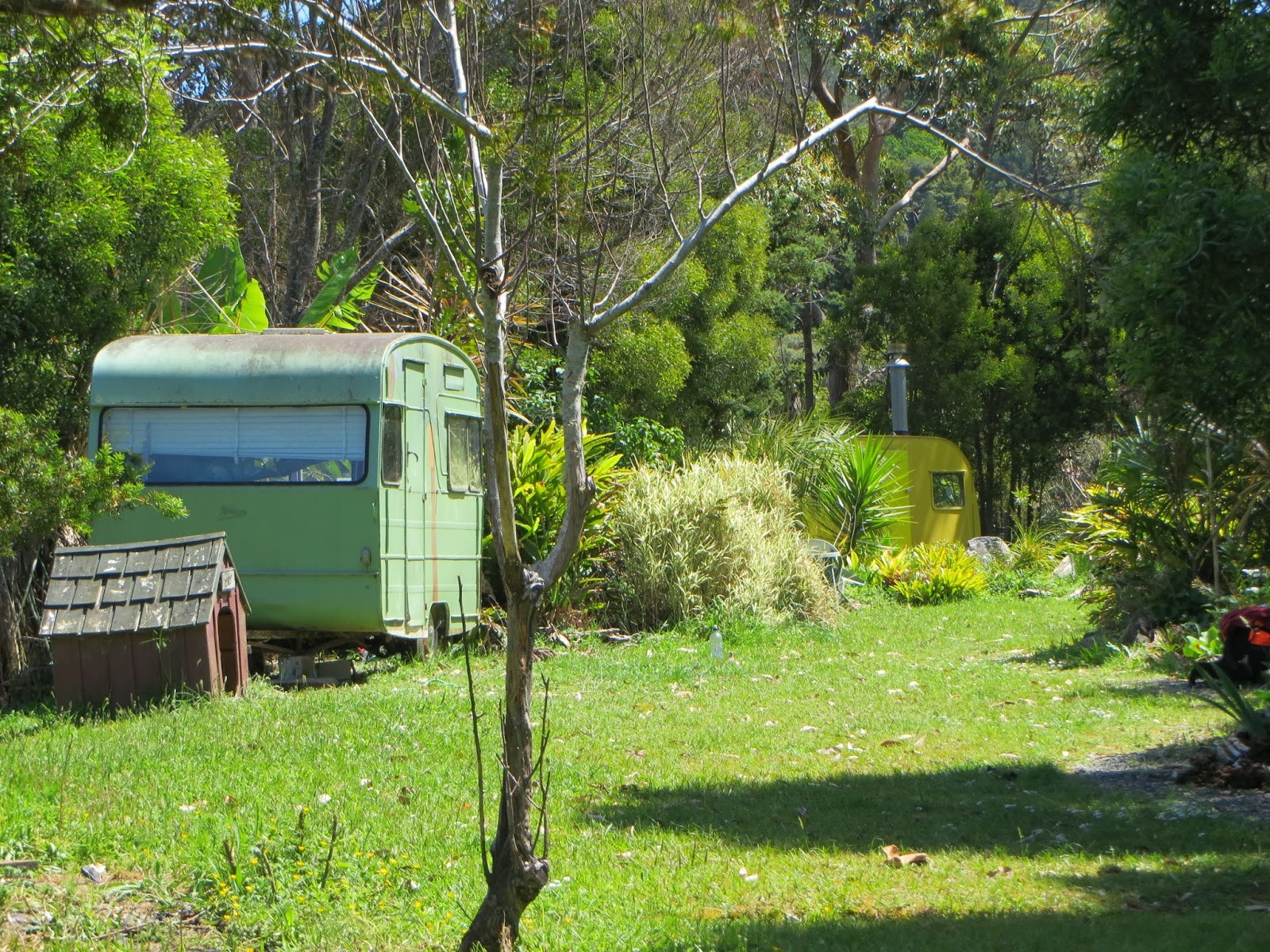
Our caravan was the yellow one.
Our day would look like this:
- 8 o’clock breakfast: this would be self-baked bread with butter and jam, or self-made porridge with nuts and dry fruits and always tea
- 9 o’clock we started our work
- between 11 and 12 o’clock, we always had a tea brake with nuts or little snacks
- 13 o’clock was time for lunch, which was always very good and healthy. The salad was always a part of the meals and it was just amazing! With own salad and vegetables from the garden, many seeds and a great dressing
- until 16 o’clock we had free time and enjoyed the sun in the big garden
- after free time again two hours of work
- 19 o’clock we ate dinner, which was normally soup and bread with butter. We couldn’t get enough of the bread, because bread in New Zealand normally is more like … well… not bread.
Work would mean: cleaning the house, cooking food, works in the garden as digging the vegetable patches, weeding, watering, harvesting, raking, cleaning the chicken coop, cleaning the pond, which means floating on the float and being with your shoulders in the water to tear out the seaweeds, which would be put on the vegetable patches later fertilizer; cleaning caravans, getting of their colours and repainting them, changing tires, mowing the lawn, make fire and burn trash, helping the arborist with the trees and the cleaning up afterwards and building walls. The works were very diversified and it never got boring. But in the evening, we normally fell into bed completely done, after getting Thai massages from one of the community. He showed and explained it also to us. On Sunday, we got a day off and we used it for sleeping in and then go on a trip to Kohukohu and some beaches on Hokianga Bay. We had perfect weather and the high sand dunes were also very impressive.
When we finally left this place, we were all very sad as we had grown close in these ten days. We promised each other to keep in contact and maybe even come back to visit them. We wished them luck and then continued onwards to new adventures, being happy that Angela was not staying alone, but already had found a nice, French couple substituting us.
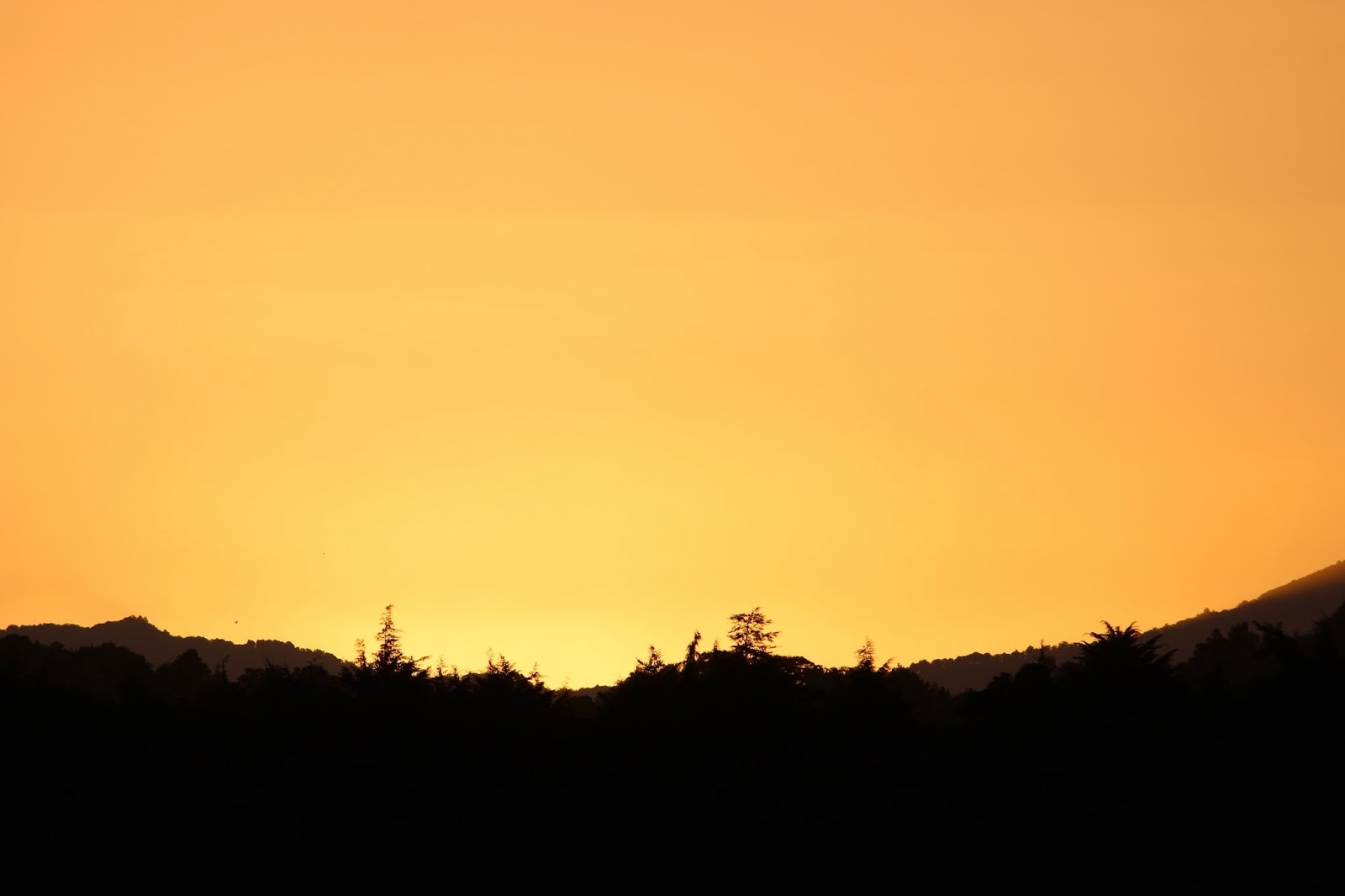
Photo gallery
Content available in other languages
- Italiano: Wwoofing in Hokianga Bay
Want to have your own Erasmus blog?
If you are experiencing living abroad, you're an avid traveller or want to promote the city where you live... create your own blog and share your adventures!
I want to create my Erasmus blog! →








Comments (0 comments)